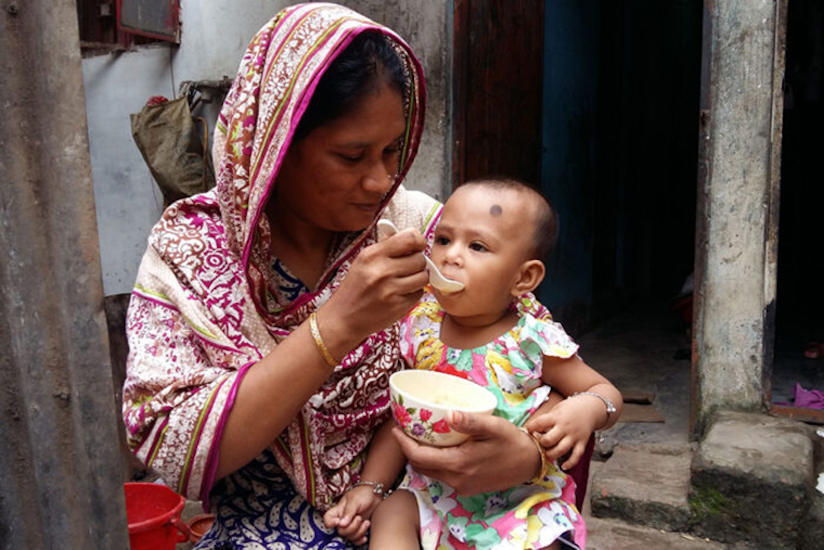A new study, published April 13 in the journal Science Translational Medicine, from Washington University School of Medicine in St. Louis and the International Centre for Diarrhoeal Disease Research in Dhaka, Bangladesh (icddr,b), shows that a standard milk-based therapy plus treatment with a specific strain of gut bacteria known as Bifidobacterium infantis (B. infantis) for four weeks promotes weight gain in infants with severe acute malnutrition, with accompanying reductions in gut inflammation. The clinical trial was conducted in Dhaka.
“Bacterial strain selection is a critical element in designing future therapies for repairing dysfunctional gut microbial communities that lead to malnutrition,” said co-senior author Jeffrey I. Gordon, MD, the Dr. Robert J. Glaser Distinguished University Professor and director of the Edison Family Center for Genome Sciences and Systems Biology at Washington University School of Medicine.
“This pilot study not only shows promising results in treating children with severe acute malnutrition but also underscores how proper development of the gut microbiota is linked to healthy growth of infants.”
Jeffrey Gordon
